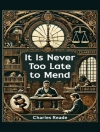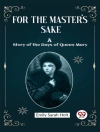In ‘Lords of the World, ‘ Alfred John Church delves into the intricacies of power dynamics and imperialism in the ancient world, crafting a narrative that interweaves historical events with rich character development. Set against the backdrop of a rapidly changing political landscape, Church employs a vivid literary style that blends classical themes with accessible prose, making complex ideas digestible for a contemporary audience. The book reflects the anxieties and hopes of a post-Victorian society grappling with the consequences of colonial ambitions and moral dilemmas, inviting readers to ponder the true cost of power. Alfred John Church, a prominent classicist and educator, draws from his extensive background in literature and history to explore the themes of leadership and responsibility in this work. His scholarly pursuits and deep understanding of classical texts inform his depiction of historical figures and events, allowing him to breathe life into the past. Church’s passion for education and his desire to present history in a compelling manner are evident throughout the narrative. I highly recommend ‘Lords of the World’ to readers who seek a thought-provoking exploration of power and morality. Church’s ability to weave together engaging storytelling with profound philosophical inquiries makes this book not only an enjoyable read but also a significant contribution to the discourse on imperialism and human ambition.
عن المؤلف
Alfred John Church (1829–1912) was an English classical scholar and writer, renowned for his didactic approach to the translation and retelling of classical texts for young audiences. Born on January 29, 1829, in London, Church served as headmaster at Retford Grammar School before establishing himself as Professor of Latin at University College, London, in 1880. A prolific writer, Church made significant contributions to popularizing ancient histories and literature among Victorian and Edwardian youths. His literary style was characterized by a fluent and accessible narrative, aiming to preserve the spirit and excitement of the original works while ensuring their comprehension by a younger, educationally broad readership. In ‘Lords of the World’ (1897), Church constructs an evocative historical narrative that captures the essence of the Roman Empire’s expansion and societal dynamics. Apart from historical fiction, Church’s portfolio includes translations of Latin classics, such as ‘The Aeneid of Virgil’ (1871), and educational texts designed to foster an appreciation of classical antiquity. Church’s dedication to classical education was driven both by academic rigor and the belief in its moral and intellectual value for contemporary society. His works remain a testament to his passion for making the rich tapestry of classical history and literature accessible and engaging.












